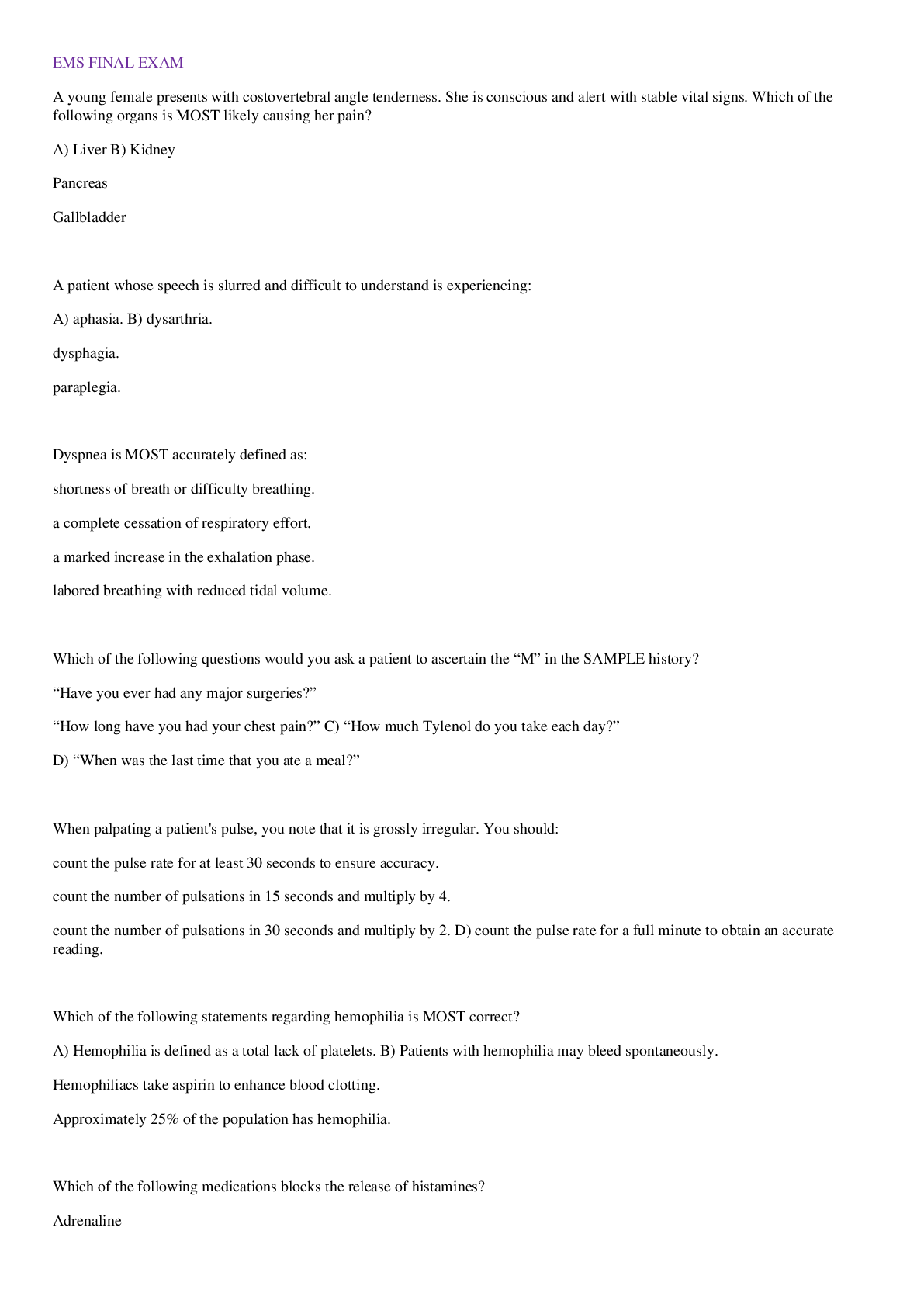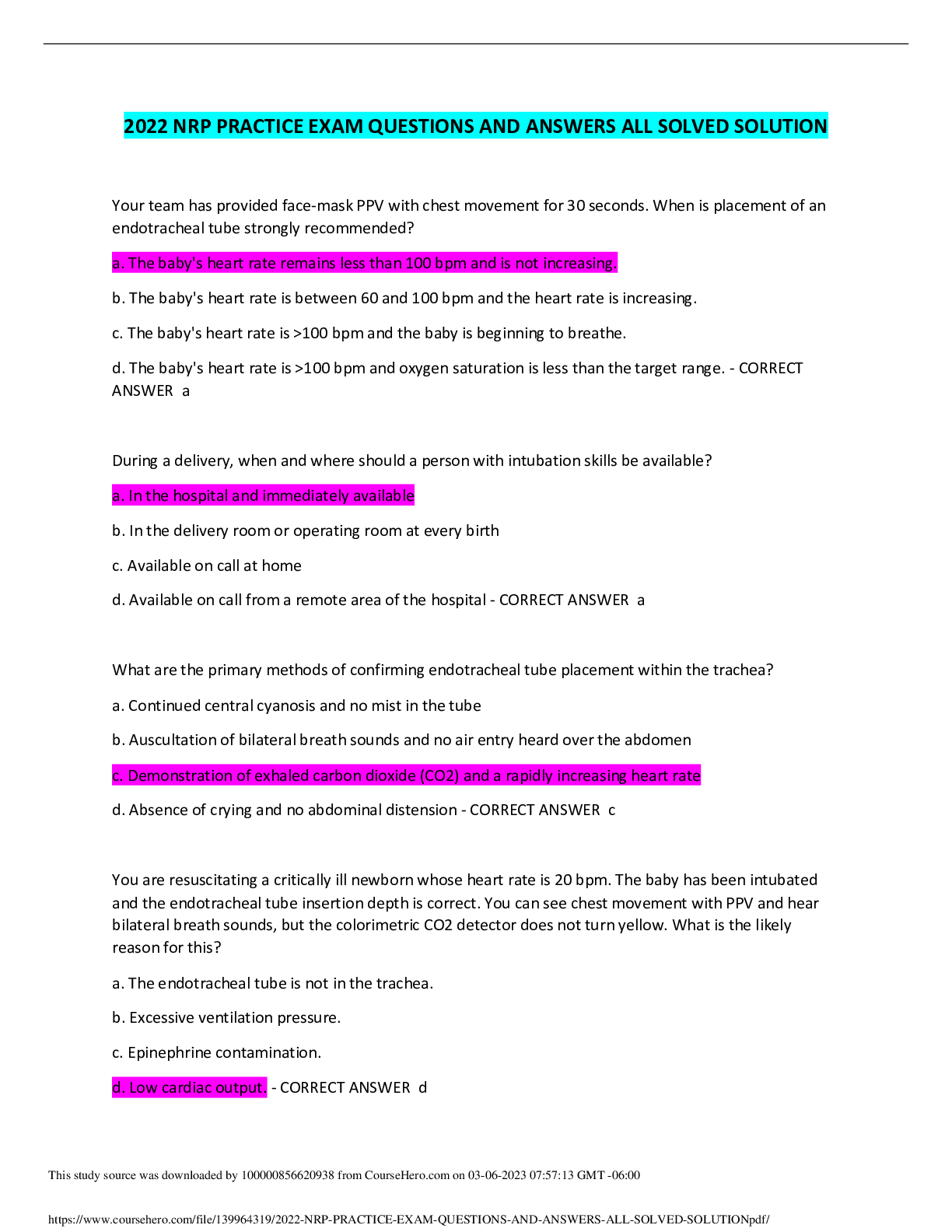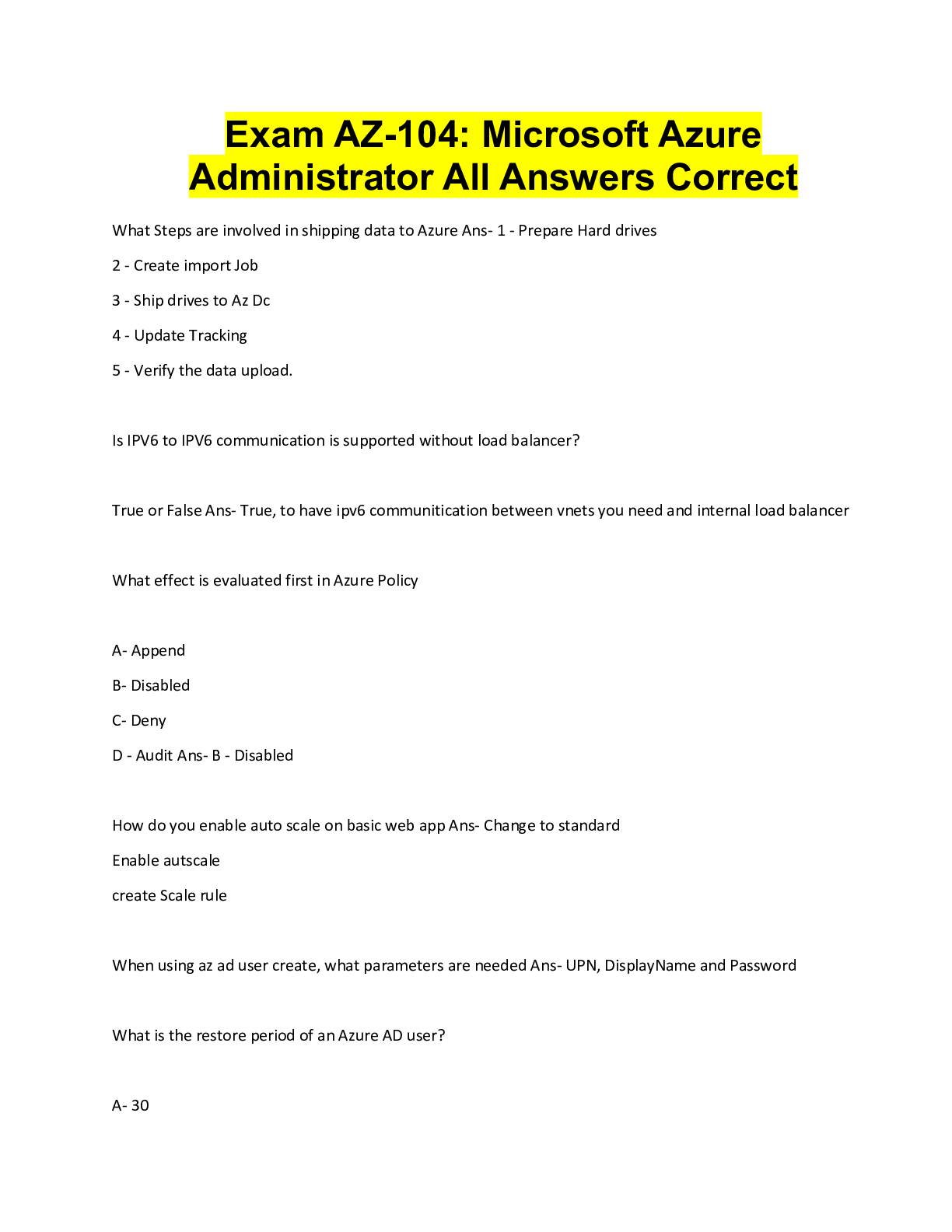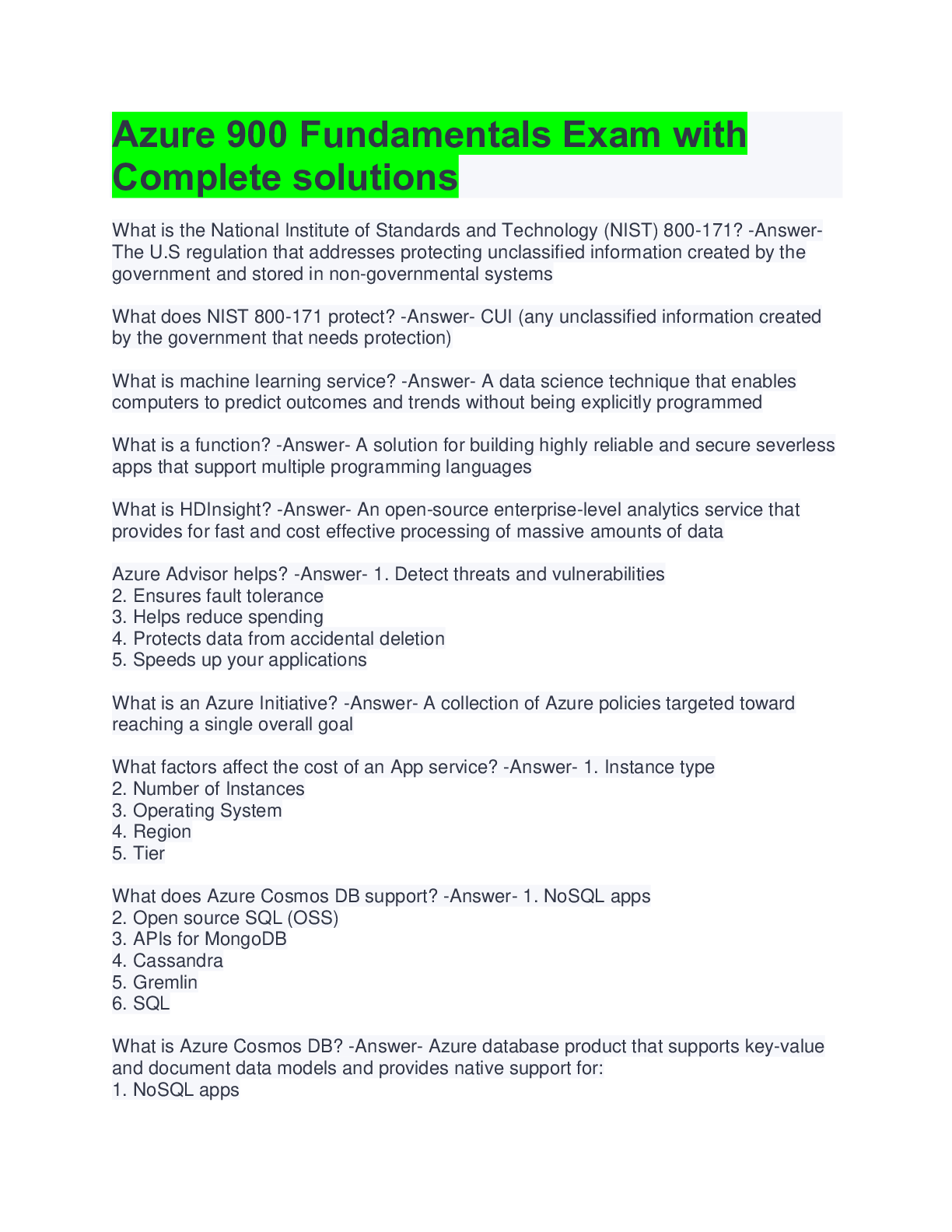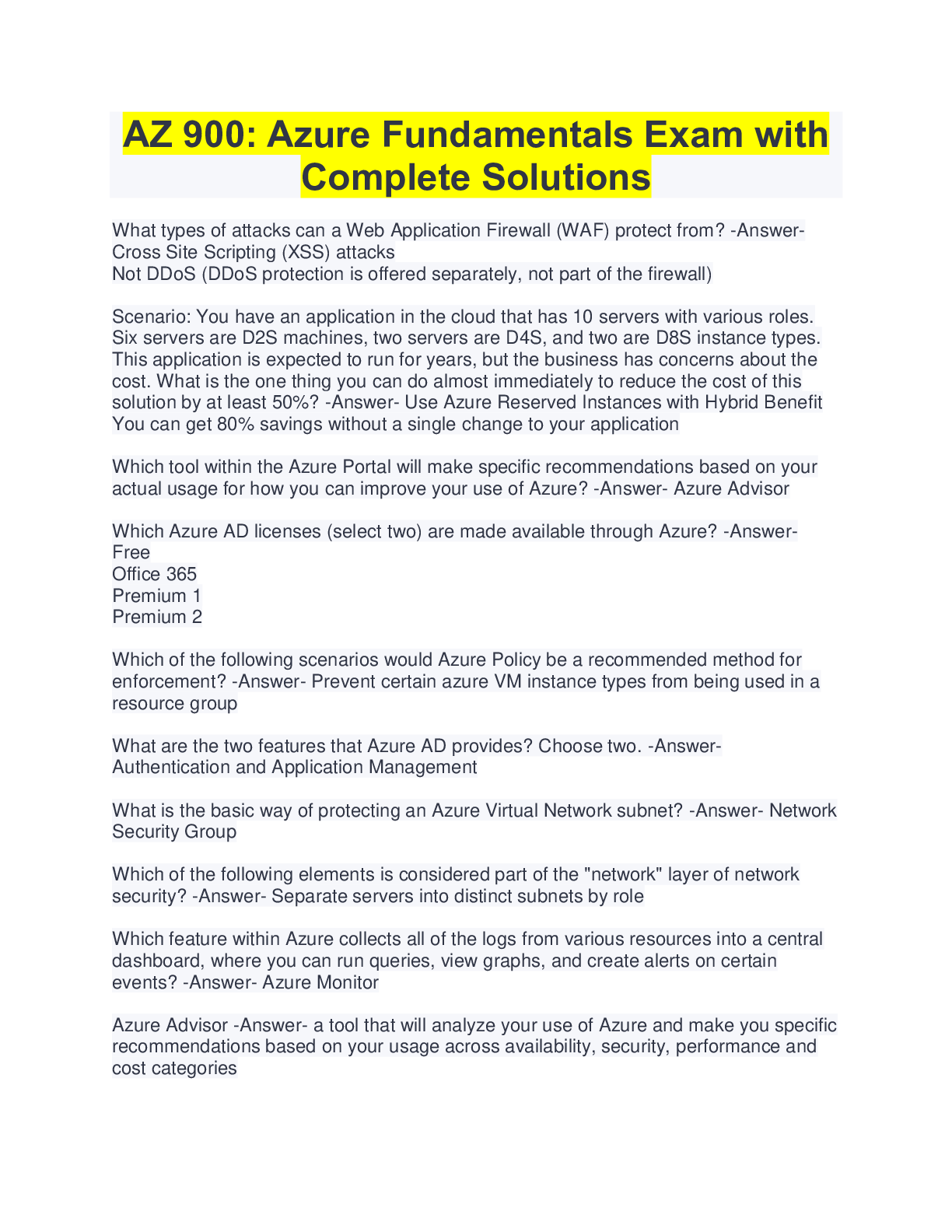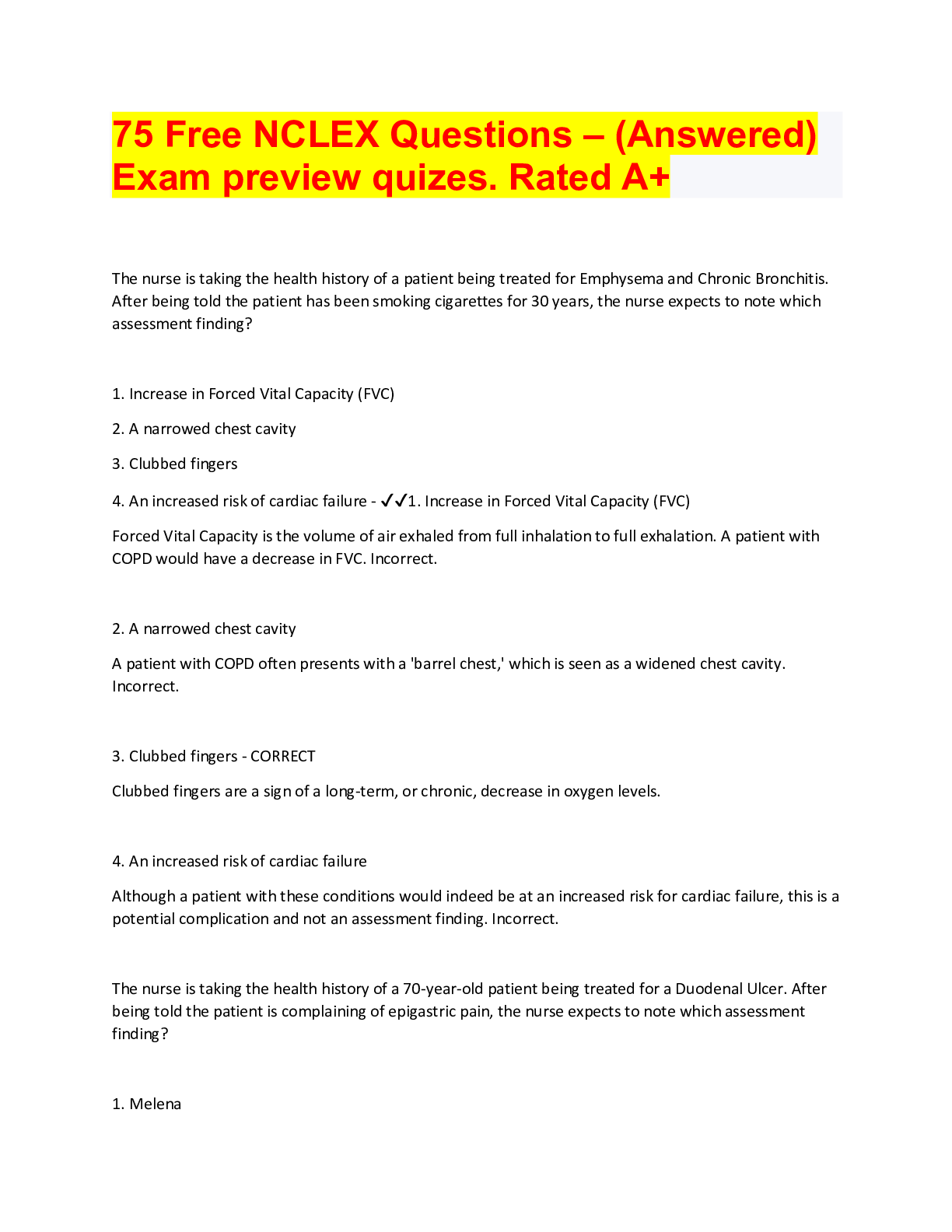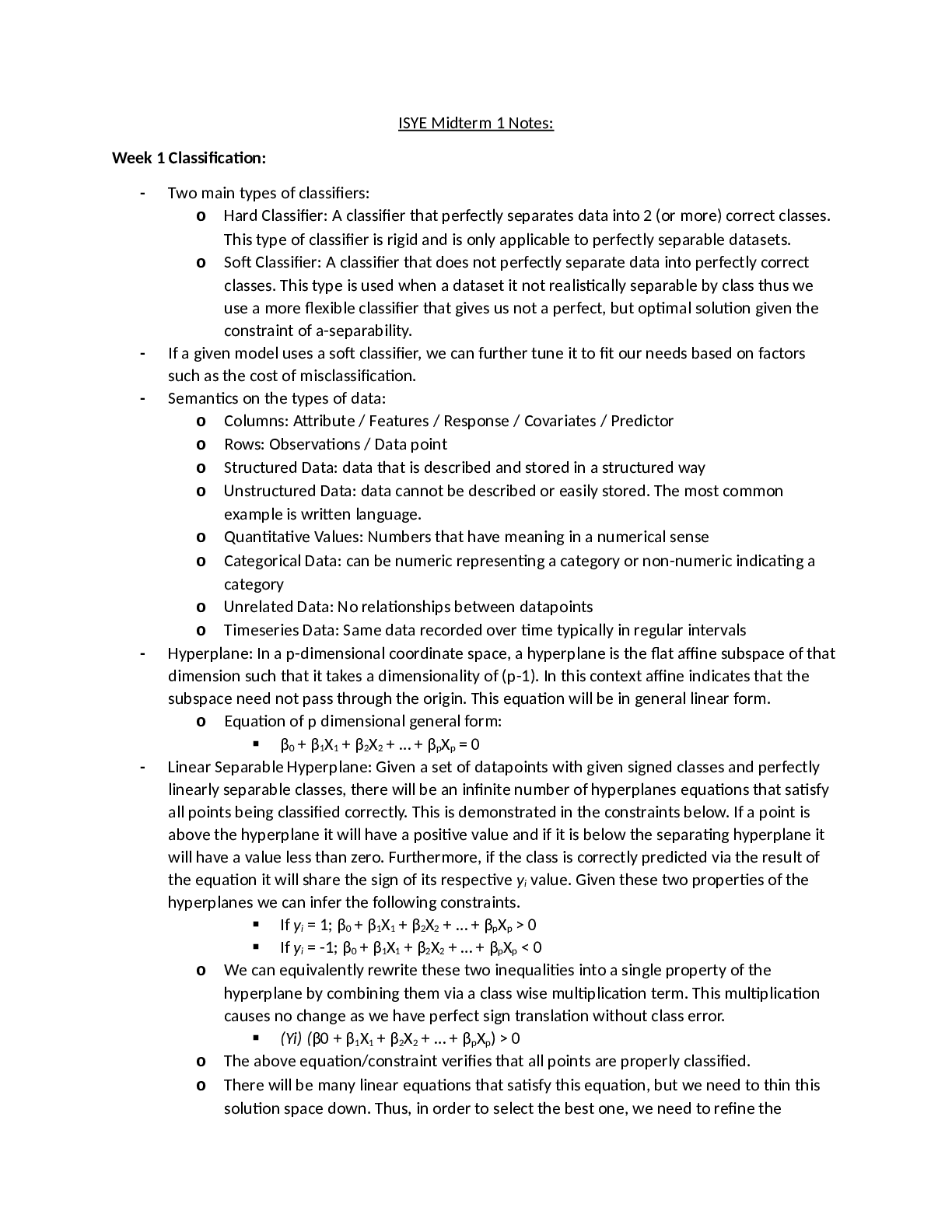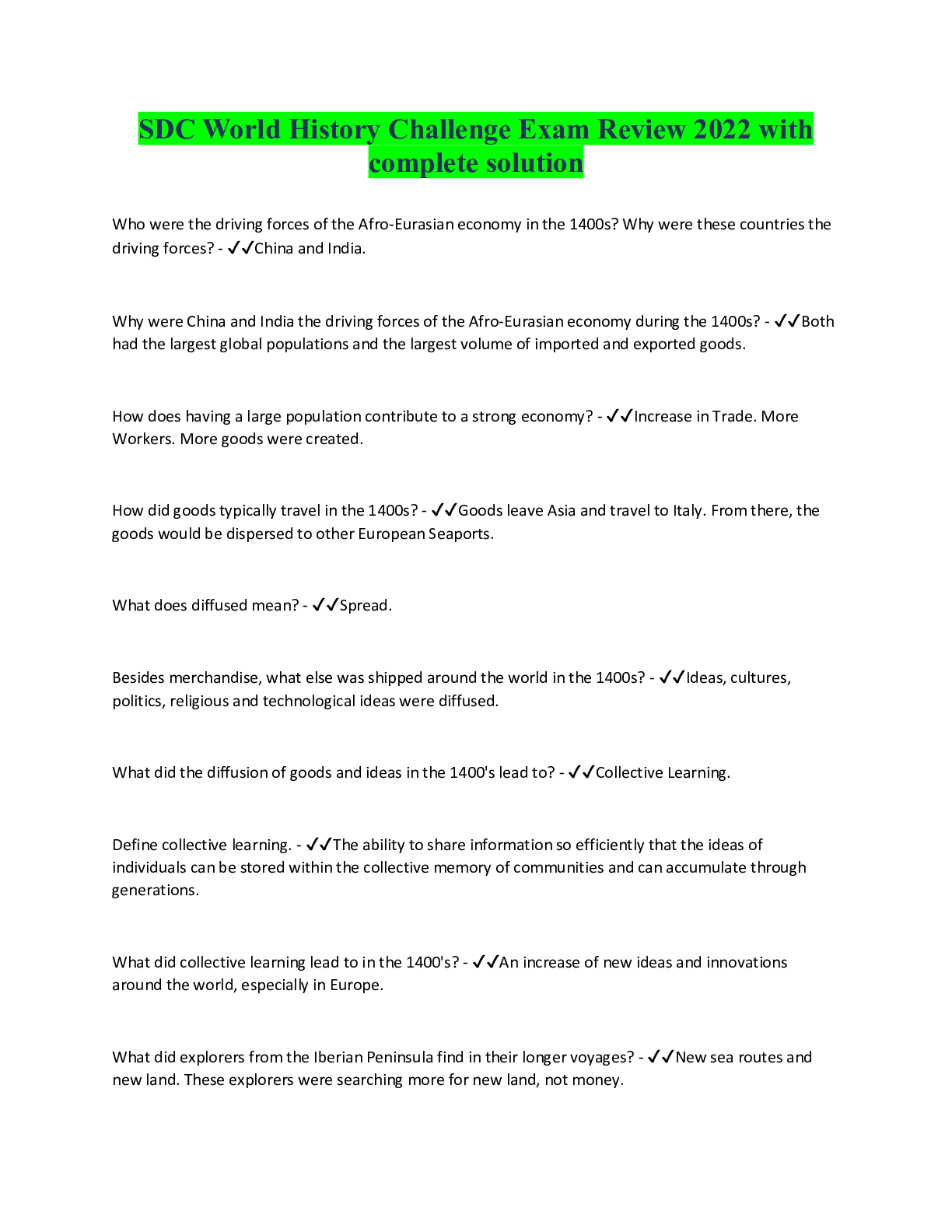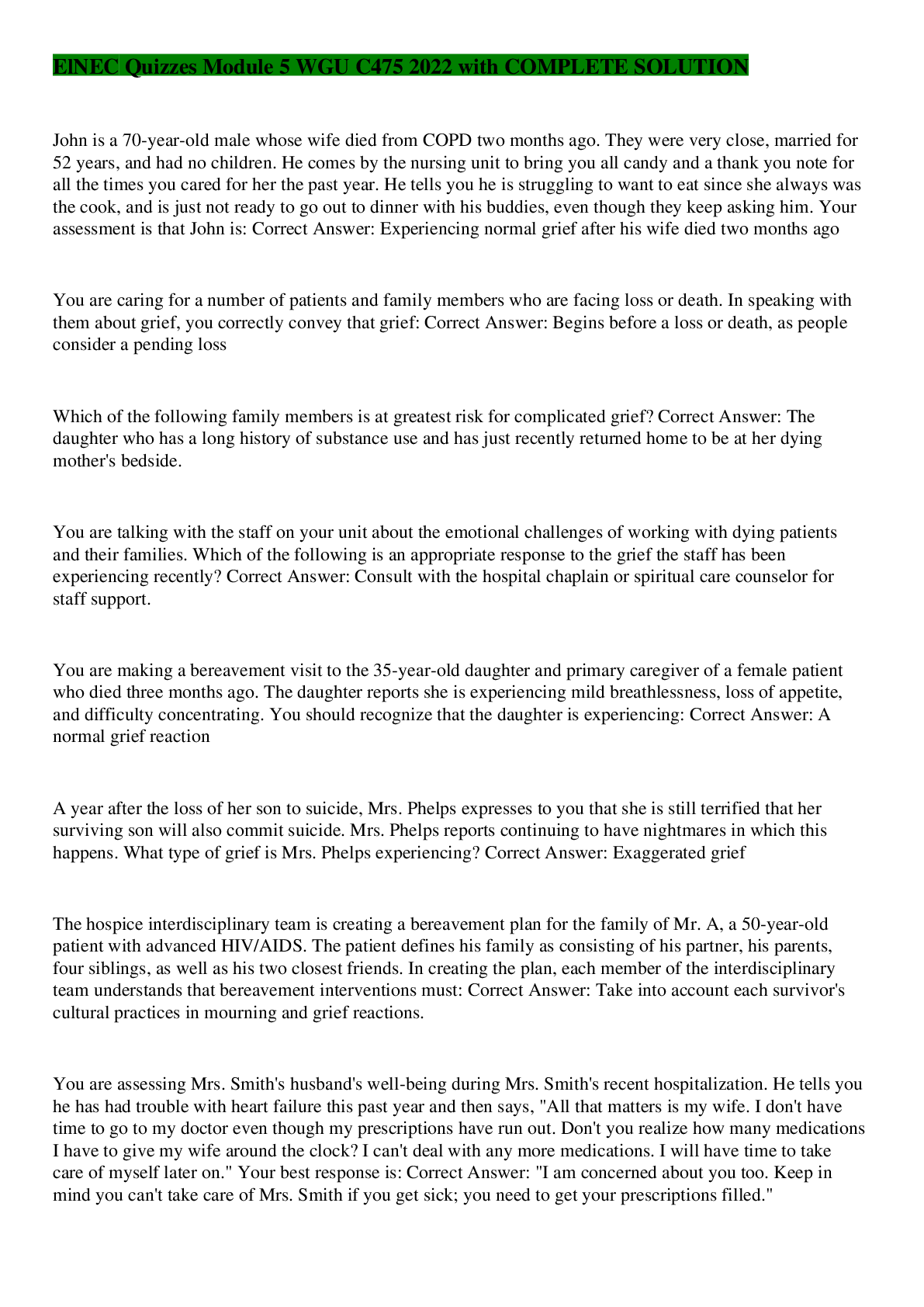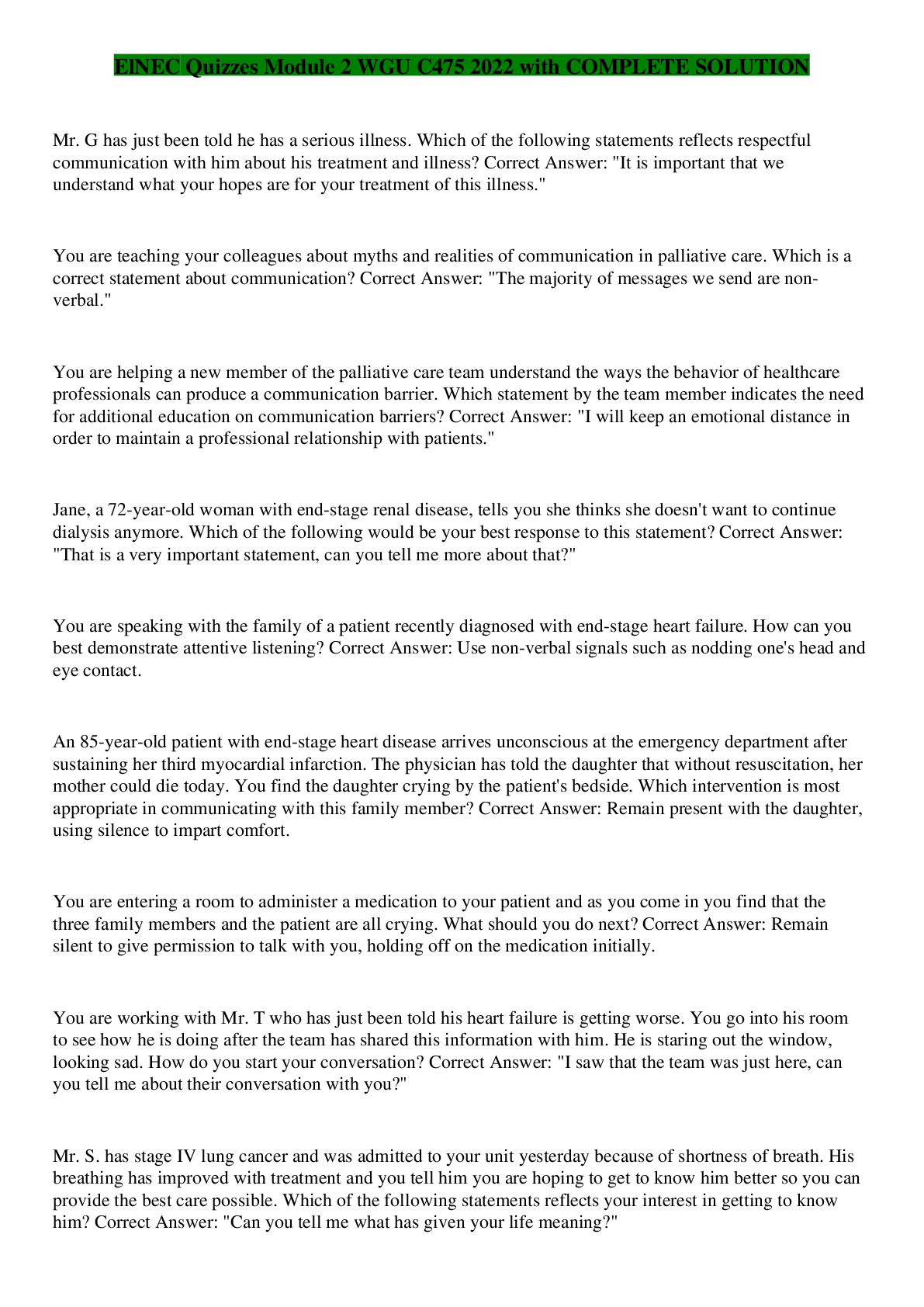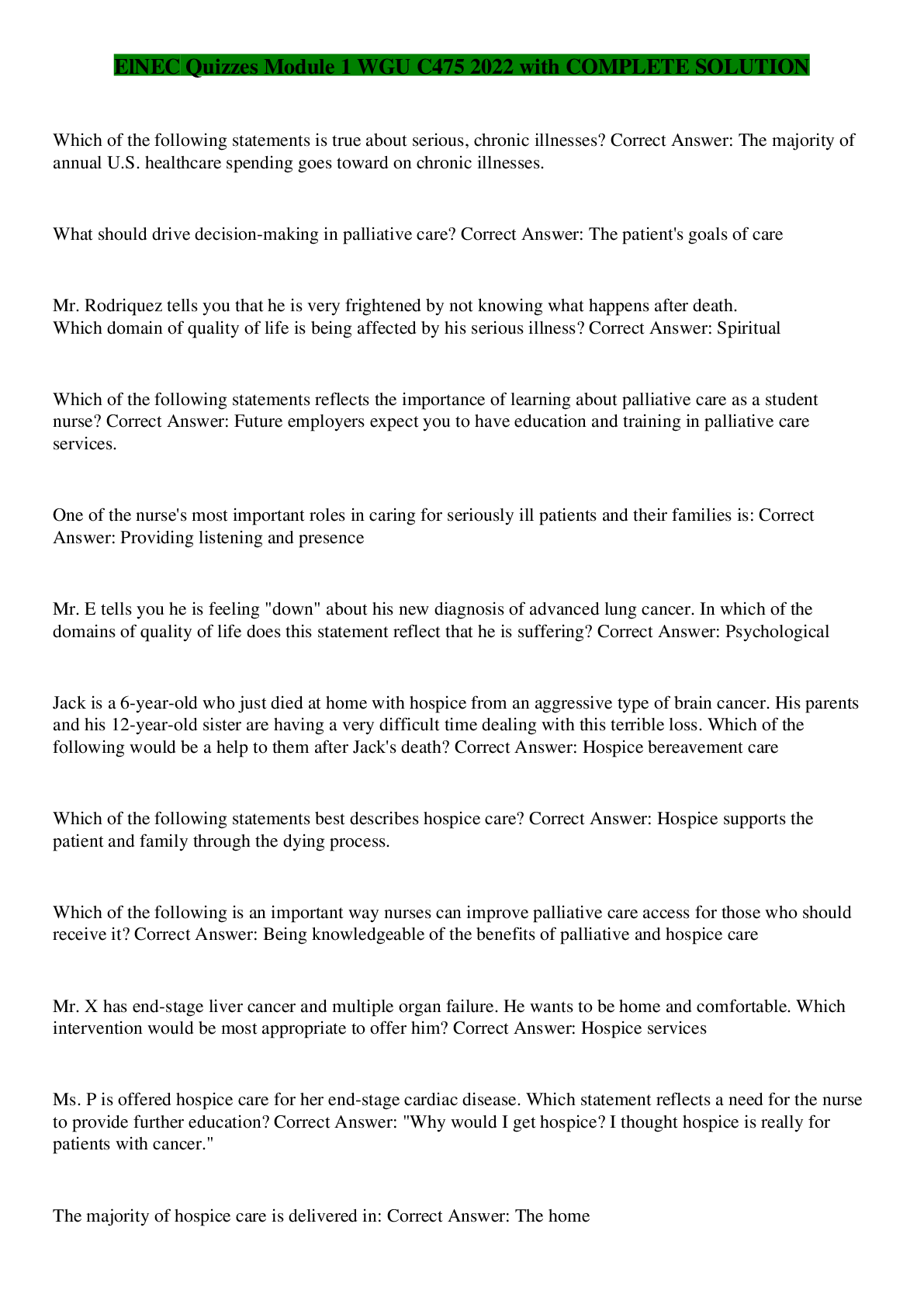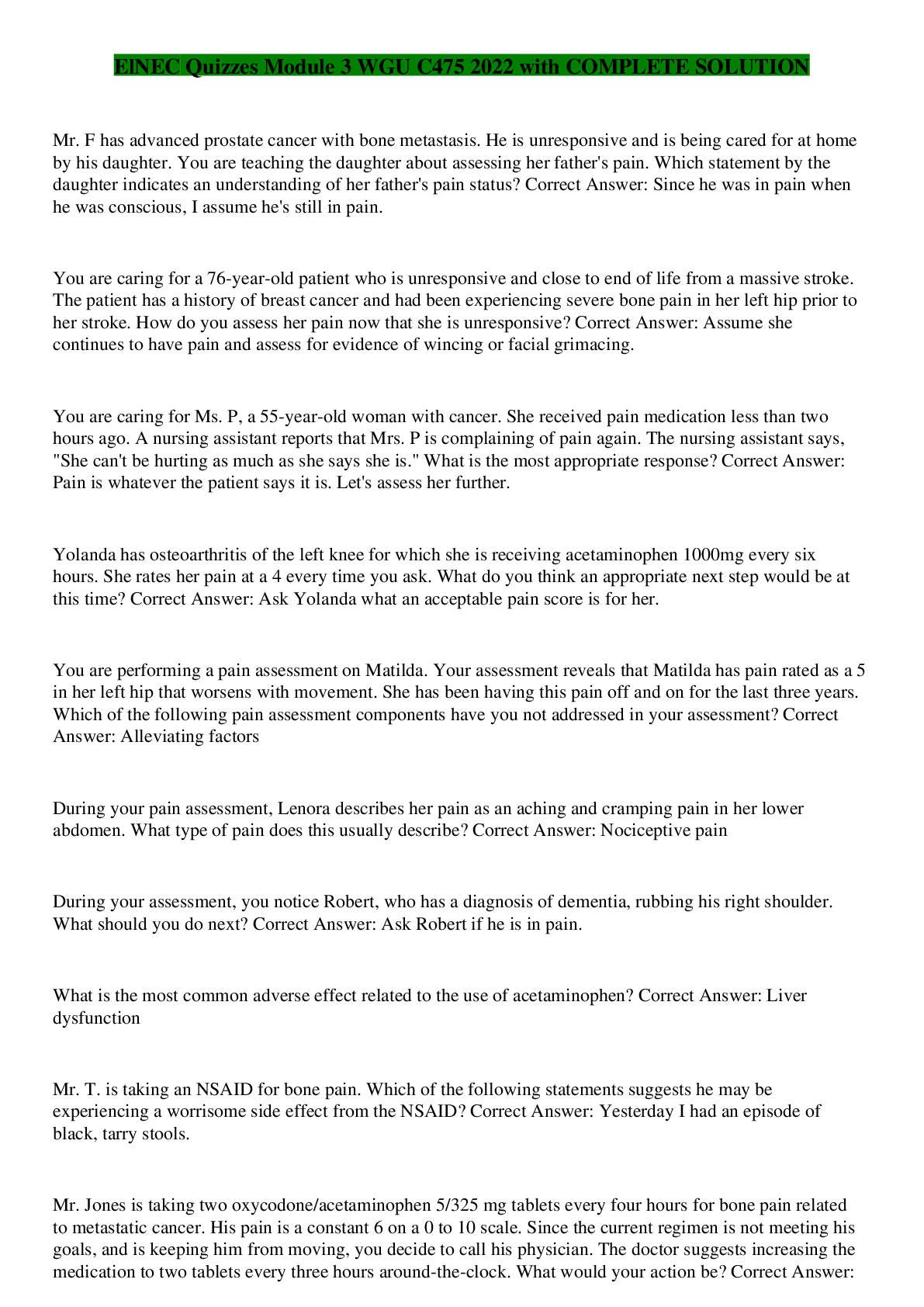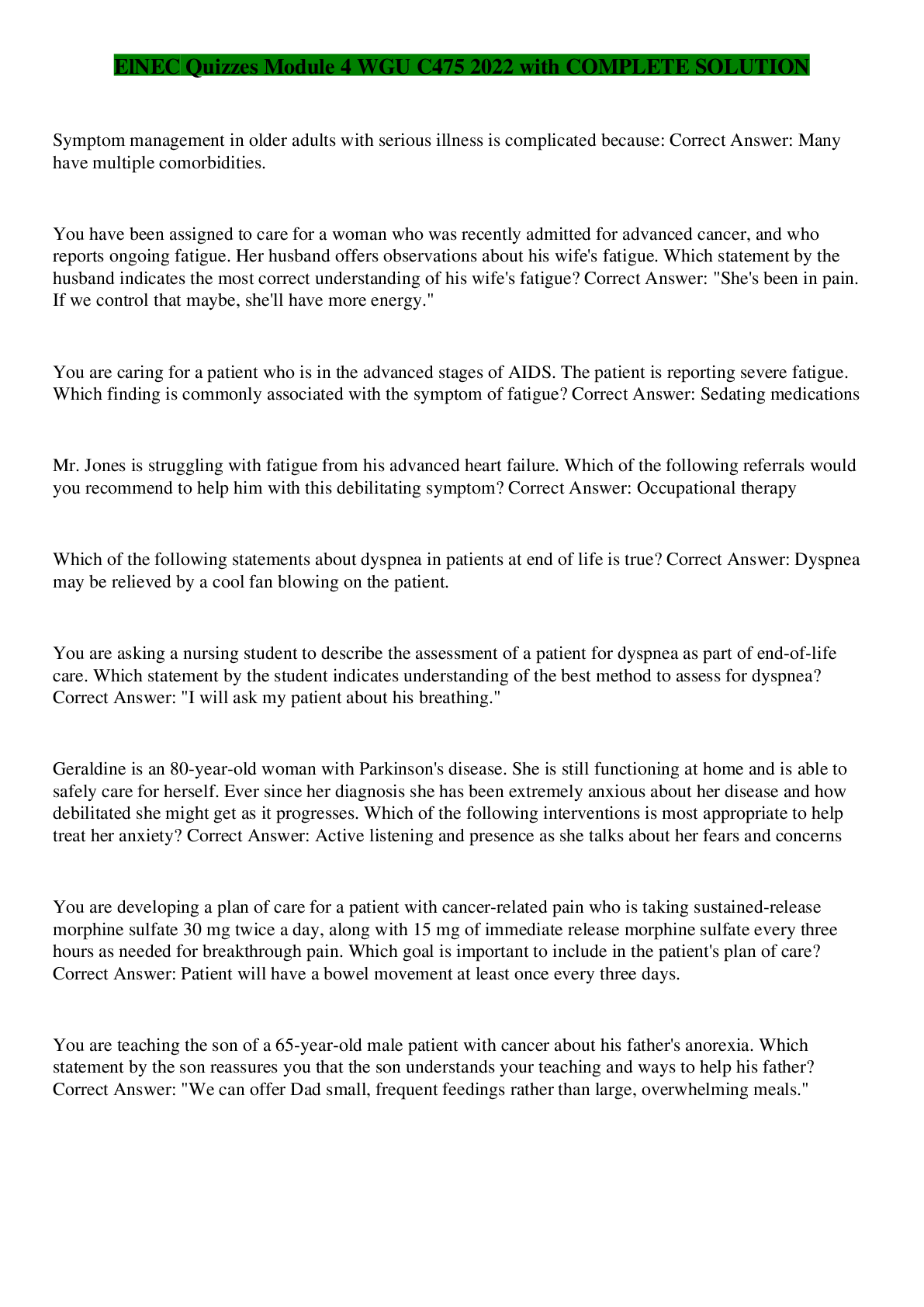Medicine > QUESTIONS & ANSWERS > AEST Associate Of Agriculture Industry Certification Study Guide 2022 with complete solution (All)
AEST Associate Of Agriculture Industry Certification Study Guide 2022 with complete solution
Document Content and Description Below
AEST Associate of Agriculture Industry Certification Study Guide 2022 with complete solution Describe the process of mitosis & Meiosis and include the stages of Mitosis -Answer- mitosis- geneticall... y identical; daughter cells. meiosis- genetically different; gamates Stages of mitosis & meiosis -Answer- Prophase, Metaphase, Anaphase, Telophase, Interphase Describe the function of photosynthesis, transpiration, & cellular respiration. -Answer- photosynthesis- makes food, sun, h20, co2, creates sugars & starches transpiration- loss of water from plant cell respiration- releasing energy List & define 8 types of land classification -Answer- 1-4 cultivate (1 is best, can farm on) 5-8 grazing (only for animals) what is soil texture vs soil structure & list the soil particles in order of particle size- large to small -Answer- soil texture- % of sand, silt, clay soil structure - arrangement of particles Separate the 17 essential plant nutrients into macro & micro, make sure t indicate which three are the most important -Answer- macro: Nitrogen, Phosphorus, Potassium, Oxygen, Carbon, Hydrogen, Calcium, Sulfur, Magnesium. Micro: Maganese, Molybdenum, Chlorine, Copper, Boron, Zink, Nickel, Iron what is the most important nutrient's main purpose for the plant? -Answer- Nitrogen; helps to make the plant green (chlorophyll) Describe the following propagation methods of air layering, tissue culture, stem cuttings, leaf cuttings, root cuttings, & seeds. -Answer- Air layering is a method of propagating new trees and shrubs from stems still attached to the parent plant. The stem is wrapped with damp moss to encourage roots to form. Plant tissue culture is a collection of techniques used to maintain or grow plant cells, tissues or organs under sterile conditions on a nutrient culture medium of known composition. It is widely used to produce clones of a plant in a method known as micropropagation. Stem cuttings: It involves taking a section of stem from a parent plant and manipulating it to create a new plant. leaf cuttings: stem cutting produces new roots, and a root cutting produces new stems root cuttings: the portion of root is cut from a parent plant (often called a mother plant), placed in a growing medium, and then left to grow its own system of roots and stems. seeds: is the method of plant propagation (multiplying, reproducing, or breeding new plants) that is done through the use of seeds. What is germination vs propagation -Answer- germination- seed sprouts propagation- growing plants Describe asexual plant propagation & sexual plant propagation. -Answer- asexual: cuttings, layering, division, buddings, & grafting sexual:involves the union of the pollen (male) with the egg (female) to produce a seed Breakdown the spermatophyta category of plants & describe each sub level. -Answer- Gymnosperm- cones, naked seeds Angiosperm- Flower parts (monocotyledons- first leaf, parallel veins, non-woody flowers * 3) (dicotyledons- netted veins, woody, flowers *4 or 5). describe the vascular system of a monocotyledon & dicotyledon -Answer- monocot- vascular bundles dicot- organized What are the 3 vegetative parts of the plant & what are their main function? -Answer- leaf- photosynthesis stem-support root- water/ nutrients what are the two types of roots? -Answer- tap & fibrous list & describe 5 modified stems -Answer- Tuber: eyes, food storage, propagation (growing plants), underground Rhizome(turf grass, ginger): underground horizontal stem, food storage bulb: with bulblets, underground, food storage bulb with leaves: underground, food storage cladophyl: stem that goes through photosynthesis, above ground stolon( golf course grass): above ground, horizontal stem, photosynthesis what is the reproductive part of the plant? -Answer- The flower is the reproductive unit of some plants (angiosperms). Parts of the flower include petals, sepals, one or more carpels (the female reproductive organs), and stamens (the male reproductive organs). What is osmosis? -Answer- is the passive transport of water across a selectively permeable membrane in order to reduce a concentration difference of a solute between a concentrate and permeate solution separated by the membrane Name the cereal crops -Answer- Rice 2. Wheat, bread wheat 3. Durum wheat, macaroni wheat 4. Corn or maize 5. Job's Tears, salay, adlay, tigbe, pawas 6. Barley 7. Millet 8. Sorghum 9. Oat 10. Rye 11. Triticale 12. Teff, taf 13. Fonio 14. Wild rice, Canada rice, Indian rice, water oats 15. Spelt 16. Canary grass [Show More]
Last updated: 2 years ago
Preview 1 out of 10 pages
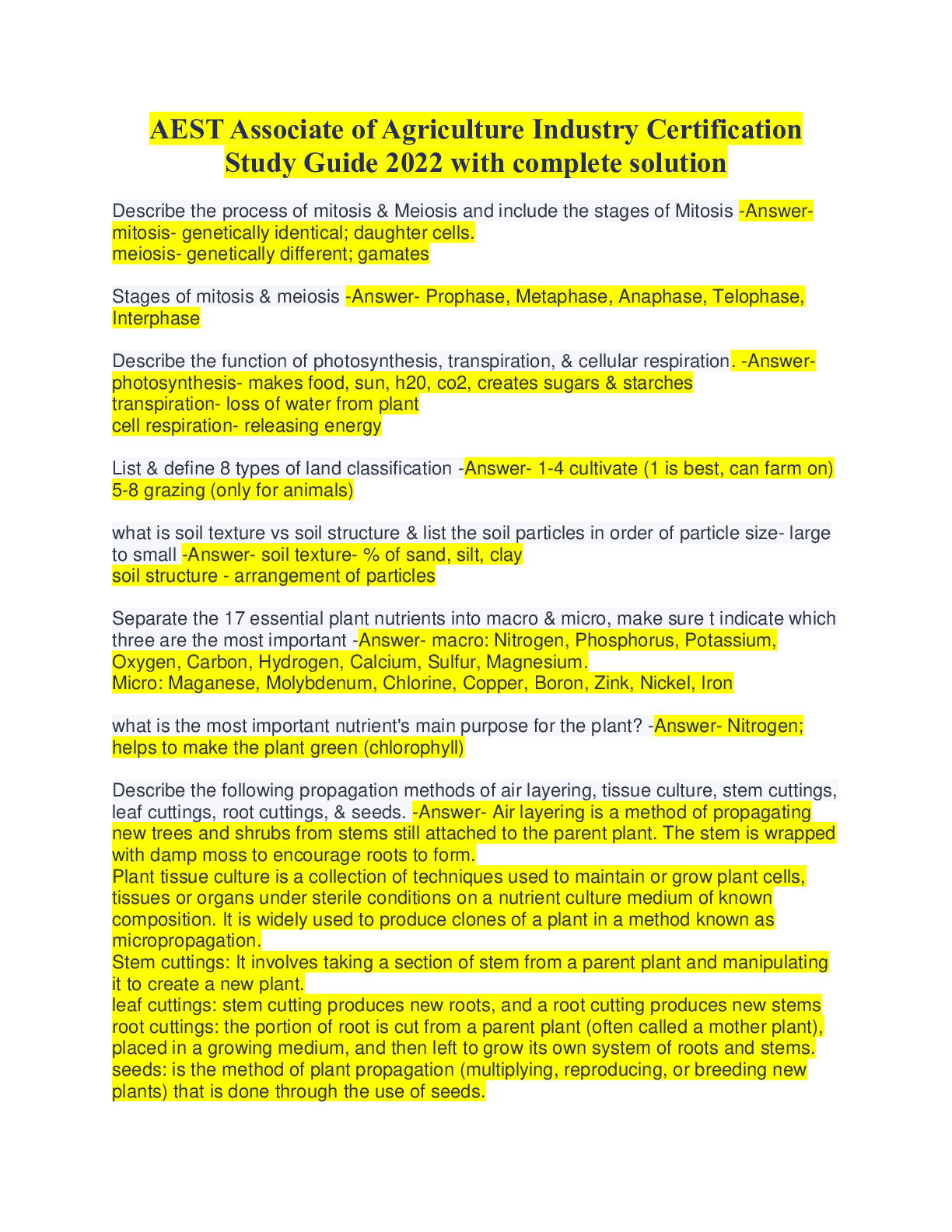
Buy this document to get the full access instantly
Instant Download Access after purchase
Buy NowInstant download
We Accept:

Reviews( 0 )
$8.00
Can't find what you want? Try our AI powered Search
Document information
Connected school, study & course
About the document
Uploaded On
Sep 14, 2022
Number of pages
10
Written in
Additional information
This document has been written for:
Uploaded
Sep 14, 2022
Downloads
0
Views
98



